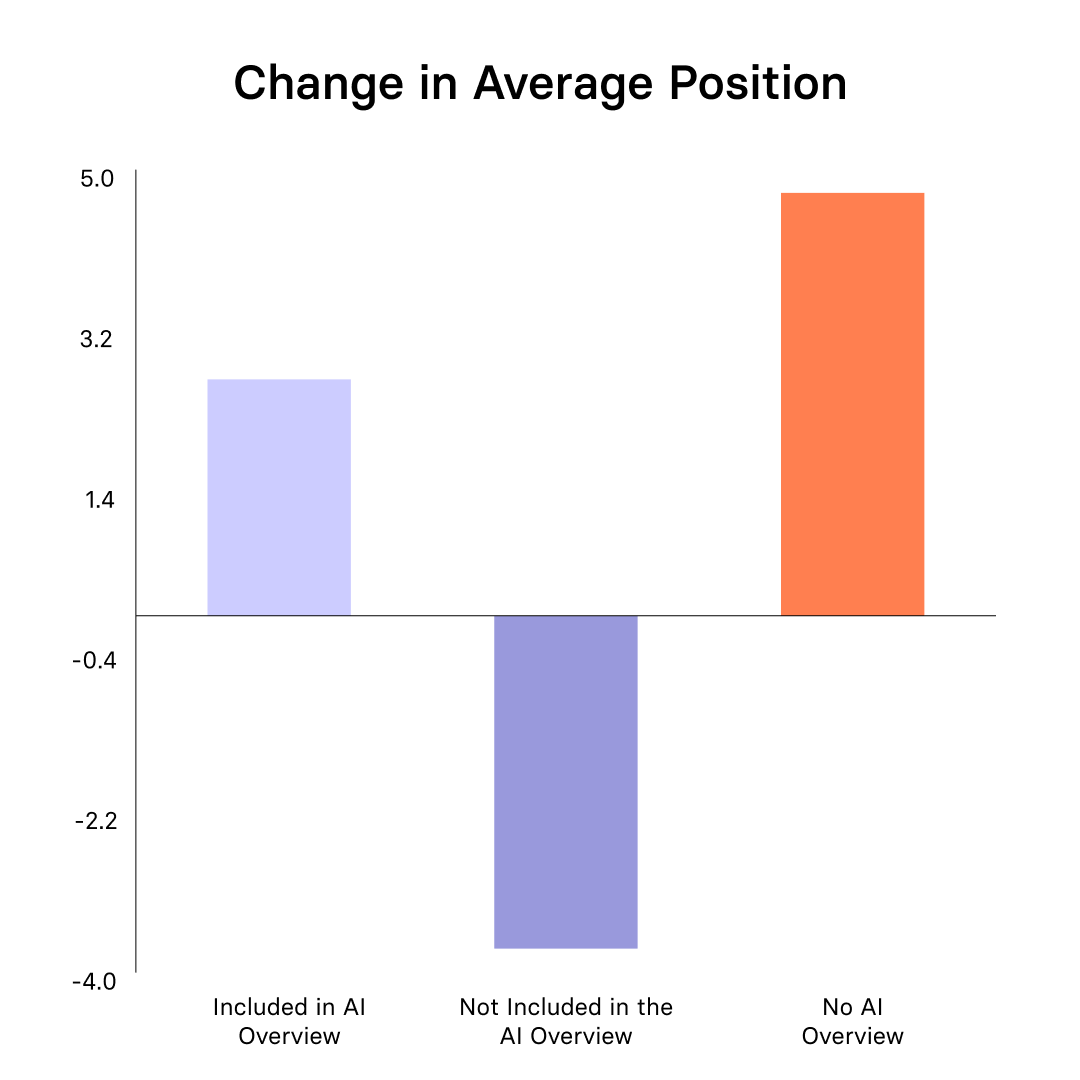AI is transforming the landscape of organic marketing. On July 25, ChatGPT launched a possible competitor to Google”SearchGPT.” Additionally, on May 31, 2024, Google introduced Gemini to enhance its search capabilities. We’ve recently published an article examining the AI overview and its implications for search. In this follow-up, we aim to explore the impact we’re observing on search dynamics. Is being linked in the AI overview now the new #1 position on Google? How does the AI overview influence your chances at organic conversions, and how should SEO agencies or businesses track the effects it’s having on their operations?
As AI in search evolves, our team is focused on how these advancements will affect our clients’ organic performance. With a 91.02% market share in search, Google remains the dominant player in organic search globally. However, as other search engines introduce AI capabilities, Google strives to maintain its market share. This strategic drive is one of the key reasons behind the introduction of the AI Overview.
The new featured snippet
One of the first things we noticed about the inclusion of AI overviews was that SERPs that include an AI overview take up a majority of the real estate where people tend to click first. Just like when featured snippets were included in 2014, there is a new competitor for your #1 position on Google and its AI.
Historically, featured snippets were coveted for many different reasons. Your quote could be the #1 spot on a page even above paid results. They were known to increase CTR, traffic, and greatly benefit your overall brand visibility. But it seems like AI overview has replaced even the once coveted featured snippet.
According to the tracking from Advanced Web Ranking, the percentage of SERPs with an AI overview currently sits at 18.5%, peaking at 22.05%. Google is testing the rollout of these overviews and seems to fluctuate the number of SERPs that feature them, but overall, they have been on a steady increase since their release back in May.
Major SEO tools like Semrush have released features to track these AI overviews. However, as these tracking tools evolve, their accuracy remains somewhat inconsistent. So, with no 100% accurate way to track these overviews, we used some manual methods to try and get a general understanding of how the AI overview was affecting our rankings.
Note: This data is derived from a small dataset (150 keywords) and may not fully represent Google search as a whole. Nevertheless, numerous individual tests are yielding similar findings. SERPs that include you in the AI overview tend to positively affect visibility and click-through rates (CTR). In contrast, SERPs that do not include you in the AI overview are likely to have a negative impact on both your visibility and CTR.
The test:
We manually searched the top 150 keywords for our site, Redefine Your Marketing. We recorded which keywords triggered an AI overview, which AI overviews included links to our site, which did not, and which SERPs showed no AI overview at all. This method helped us understand the impact of AI features on our search visibility.
Results:
We analyzed the performance of our top 150 keywords over the three months before and after Google’s implementation of AI overviews on May 31. Out of our top 150 keywords, 56 now feature AI overviews at the top of the SERP, accounting for approximately 37% of the keywords. Notably, our website is linked in 35 of these 56 AI overviews, translating to inclusion in about 63% of the overviews.
The numbers:
Impressions:
- URLs Included in the AI Overview: Rose by 33,158 (23.63%)
- URLs Not Included in the AI Overview: Dropped by 1,123 (-4.54%)
- URLs in SERPs With No AI Overview: Rose by 37,318 (39.37%)

Clicks:
- URLs Included in the AI Overview: Increased by 54 (8.74%)
- URLs Not Included in the AI Overview: Decreased by 9 (-10.34%)
- URLs in SERPs With No AI Overview: Increased by 76 (16.70%)

Positions:
- URLs Included in the AI Overview: Improved from 18.28 to 15.63, a shift of 2.65 ranks
- URLs Not Included in the AI Overview: Declined from 17.58 to 21.31, a shift of 3.73 ranks
- URLs in SERPs With No AI Overview: Improved from 20.65 to 15.91, a shift of 4.74 ranks

CTR:
- URLs Included in the AI Overview: Improved from 3% to 4.46%, a 1.79% increase
- URLs Not Included in the AI Overview: Rose from 2% to 4.44%, an increase of 2.51%
- URLs in SERPs With No AI Overview: Improved from 3.05% to 5.05%, an increase of 2.01%

In general, we saw positive improvements for pages featuring us in the AI overview and pages with no overview at all. We also had negative results for pages where the SERP featured an AI overview but did not include us.
Data conclusion:
While the sample size of this analysis is relatively small, the initial findings suggest that pages featured in an AI overview experience a noticeable improvement in performance compared to those that are not included. This evidence highlights the potential advantages of aligning content strategies with AI-driven search features to enhance visibility and engagement. As AI continues to reshape search algorithms, the importance of securing a presence within AI overviews could become a critical factor for SEO success.
We’re not the only ones who are curious:
Numerous other agencies, businesses, and brands are asking the same question: Is Google’s AI going to affect my search results? The easy answer is yes. AI overviews will impact search possibly on a greater level than any other user-facing update we’ve seen on Google since the Panda Update.
This article from Search Engine Land takes a much more pessimistic view of AI’s effects on search. According to them, “AI is expected to increase daily searches sixfold but could also lead to a 60% decrease in average click-through rates (CTR). This might result in a 30% reduction in organic traffic across all websites.”
According to Semrush “If a website’s content is prominently featured or cited in a Google AI summary, it could increase its visibility and click-through rate (CTR).” However, there are conflicting points of view with some studies suggesting that inclusion in the AI overview could lead to a decrease in overall CTR.
Ross Hudgens of Siege Media reported increased impressions, average click-through rate (CTR), and total traffic since the AI Overviews were implemented—a notable 4% increase in CTR compared to standard search results. Kevin Indig of Growth Memo, on the other hand, recently shared findings that indicate that AI Overview (AIO) citations tend to send fewer clicks to cited URLs. He observed nearly a 9% decline in the click-through rate from AI Overviews compared to normal search results.
How will Google make money?
Ultimately, Google’s updates, including the AI overview, aim to enhance ad conversions. The AI overview allows for the creation of ultra-targeted, AI-generated ads that guide users through the conversion funnel. Google is already experimenting with placing ads within AI overviews, and we anticipate their widespread adoption in the near future. The introduction of ads within these overviews is set to significantly alter current test results, as Google is likely to prioritize paid results over organic ones in AI-enhanced search results.
Conclusion
Although our personal test was minimal, we already see the impact of the AI overview. With the data indicating improved performance for pages featured in AI overviews and their prevalence increasing monthly, it’s clear that these AI-driven features are reshaping search dynamics significantly.
The search landscape is rapidly evolving, and AI necessitates changes in SEO strategies. As the prevalence of AI in SERPs increases, it’s clear that Google will continue to develop these features, potentially changing how we approach organic search fundamentally. Businesses and SEO professionals must stay vigilant, constantly updating their tactics to align with the latest AI-driven changes. This may involve more dynamic content creation, greater emphasis on being featured in AI overviews, and a refined approach to keywords.
Staying ahead will require a proactive approach to SEO, leveraging emerging tools and analytics to monitor changes and adjust strategies accordingly. As we continue to navigate this changing terrain, the importance of agility and foresight in digital marketing strategies cannot be overstated. However, as we embrace these changes, the opportunities for innovation and growth in SEO are immense. By adapting to AI trends and optimizing for the future, we position ourselves at the forefront of digital marketing success.





